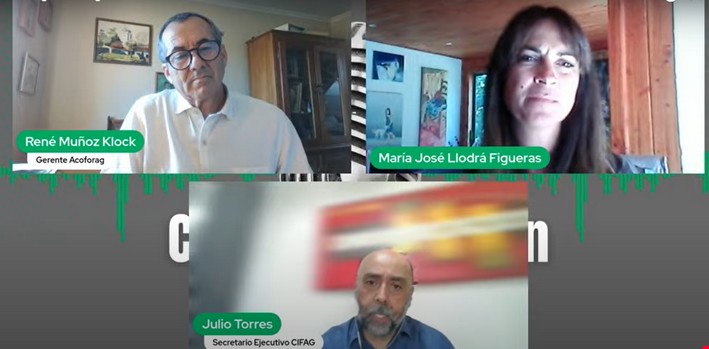In a conversation with Acoforag, Julio Torres, a forestry engineer and executive secretary of the College of Forestry Engineers of Chile, emphasized the importance of understanding the impact legislation has on forestry activity and employment.
He explained that although legislative discussions may seem distant and complex, their effects are direct and decisive for people's well-being and the sustainability of the sector.
One of the central topics addressed was the draft bill for forestry promotion and sustainable management, which is in a preliminary phase. According to Torres, this draft has not yet been submitted to Congress and therefore cannot formally be considered a bill. However, the Ministry of Agriculture and the National Forestry Corporation (CONAF) have presented their general guidelines in meetings with sector stakeholders.
The Country's Needs
One of the main concerns of forestry associations is the government's insistence on restricting promotion exclusively to mixed plantations, disregarding monoculture forestry. This measure stems from the Framework Law on Climate Change, which discourages monocultures. However, Torres stressed that promotion should respond to the country's needs, which currently faces two major problems: timber shortages and non-compliance with international emission reduction commitments.
The timber shortage has been exacerbated by wildfires, theft, and rural violence. According to the Chilean Wood Corporation (Corma), approximately 100,000 hectares of plantations are inaccessible due to violence in some regions. This primarily affects small and medium-sized forestry enterprises. Additionally, the country is far from meeting its goal of planting 200,000 hectares of forest by 2030, as only 10,000 hectares have been planted to date.
Another relevant aspect is wildfire management. Torres criticized the lack of preventive measures and the tendency to penalize forest landowners instead of focusing on those who start the fires. He noted that while prosecuting those responsible is the task of the judiciary, prevention is the State's responsibility. In this context, he highlighted that preventive states of exception have proven to be useful tools for reducing wildfires.
The numbers reflect the severity of the problem. In the current season, 62,000 hectares have burned, with over 50% of the damage concentrated in La Araucanía. In the last eight years, this region has led the ranking of burned area in seven seasons. The situation demands a strategic approach to ensure the sector's sustainability and the safety of affected communities.
The full interview is available on Acoforag's YouTube channel:







Comentarios (0)
No hay comentarios aún. ¡Sé el primero en comentar!
Deja un comentario